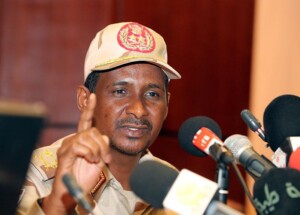SBA clarifies: new Sudan constitution heavily curbs military influence
The Sudan Bar Association (SBA) has further explained the vision of their proposed draft constitution with regards to military reform in a symposium in Khartoum on Saturday, after criticism. They propose limiting military powers much more than stipulated in the 2019 Constitutional Document.
 A workshop on the new transitional constitutional framework organised by the Sudanese Bar Association in august (social media)
A workshop on the new transitional constitutional framework organised by the Sudanese Bar Association in august (social media)
The Sudan Bar Association (SBA) has further explained the vision of their proposed draft constitution with regards to military reform in a symposium in Khartoum on Saturday, after criticism. They propose limiting military powers much more than stipulated in the 2019 Constitutional Document.
Recently, the SBA drafted a constitutional framework for the transitional period. It is one of many vision initiatives presented by different groups to envision Sudan’s transitional period, however, it is also one of the more detailed and thought-out visions and received both national and international support.
Some groups, especially the Sudanese Professionals Organisation (SPA), criticised the draft and called it an attempt "to flee forward to a settlement with the military" and opposed plans to hold early elections as long as elements of the former regime are not fully dismantled.
It is possible that, because of these criticisms, the SBA has clarified its stance on the dismantling of empowerment and limiting military powers.
Unified army under civilian command
During the symposium, lawyer and SBA member Abdelgader El Badawi said that the draft transitional constitution stipulates a single professional army with a doctrine representing the defence of the homeland, unlike the former Constitutional Document that was signed in August 2019 by the military junta and the forces for Freedom and Change, which provided for two armies: the Sudan Armed Forces (SAF) and Rapid Support Forces (RSF).
He explained that the draft constitution stipulated the integration of the RSF and former rebel combatants into the Sudanese army, provided that the military institution will be under civilian command and that forces will be prohibited from carrying out any commercial activities.
Currently, big parts of Sudan’s economy, especially its gold exports, are in the hands of the military or the Rapid Support Forces.
The commanders of these forces are also the Chairman and Vice-Chairman of Sudan’s Transitional Sovereignty Council and took power in a military coup just before they were supposed to hand over power to a civilian leader.
According to the SBA draft transitional constitution, any reform in the military apparatus should happen through a plan drawn up by a civilian government. El Badawi explained that the 2019 Constitutional Document restricted the revolution from achieving its goals because those who drafted the transitional constitution benefited from centralising military presence and limiting reform.
The 2019 Constitutional Document also granted the military component the right to appoint the ministers of Defence and Interior Affairs.
Empowerment removal
Lawyer Abla Karrar explained that the SBA draft constitution also contains clauses to remove any empowerment (tamkin)* set up during the regime of ousted President Omar El Bashir and any empowerment that continued during the past three years.
She explained that the jurists and politicians who drafted the constitution agreed on the occurrence of empowerment in the period after the fall of the former regime and after the October 25 coup.
She denied providing any external financial support for the drafting of the constitution and explained that the draft constitution was drafted by jurists and politicians from inside and outside the SBA with the help of consultation firms.
She also stressed that the SBA project provides for the formation of a national committee, with the help of international mediators, to evaluate the Juba Peace Agreement with the participation of the peace parties.
Critiques
The SBA draft constitution received support from a number of pro-democratic political forces, who proposed some amendments and approved the final version earlier this month.
Many international embassies and the Trilateral Mechanism also considered the document as a “serious and encouraging initiative” and offered support to the SBA’s “continued efforts to include a vast array of civilian political parties and forces" in the initiative.
The Sudan People's Liberation Movement-North (SPLM-N) under the leadership of Abdelaziz El Hilu and the Sudanese Professionals Association (SPA), however, both rejected the constitutional draft.
El Hilu said that the proposed constitution resists radical change, and the SPA considered it an attempt “to flee forward to a settlement with the military by ensuring their impunity and a safe exit”. They called the project premature and said that it “bypasses consensus on a political charter of the forces of the Sudanese revolution,” referring to the charters of the Sudanese resistance committees.
The SPA also refuses to hold any elections before dismantling the elements of the former regime.
It is possible that, because of these criticisms, the SBA has clarified its stance on the dismantling of empowerment and limiting military powers.
A group of Sudanese women also presented a new unified gender-responsive constitutional vision. The women’s proposal consists of guiding principles and key clauses to be included in any upcoming constitutional document to ensure women’s rights and meaningful participation in Sudan.
The Communist Party of Sudan renewed its refusal to sit with the Forces of Freedom and Change in any negotiations.
The secretariat of the party's Central Committee said in a press statement on Thursday that it still adhered to its decision of the party’s central committee to refuse to sit with the political blocs that participated with the military junta in ruling the country before and after the October 25 coup.
* Empowerment (tamkin) is the term with which the ousted government of Omar Al Bashir supported its affiliates by granting them far-going privileges, including government functions, the setting-up of various companies, and tax exemptions.











 and then
and then